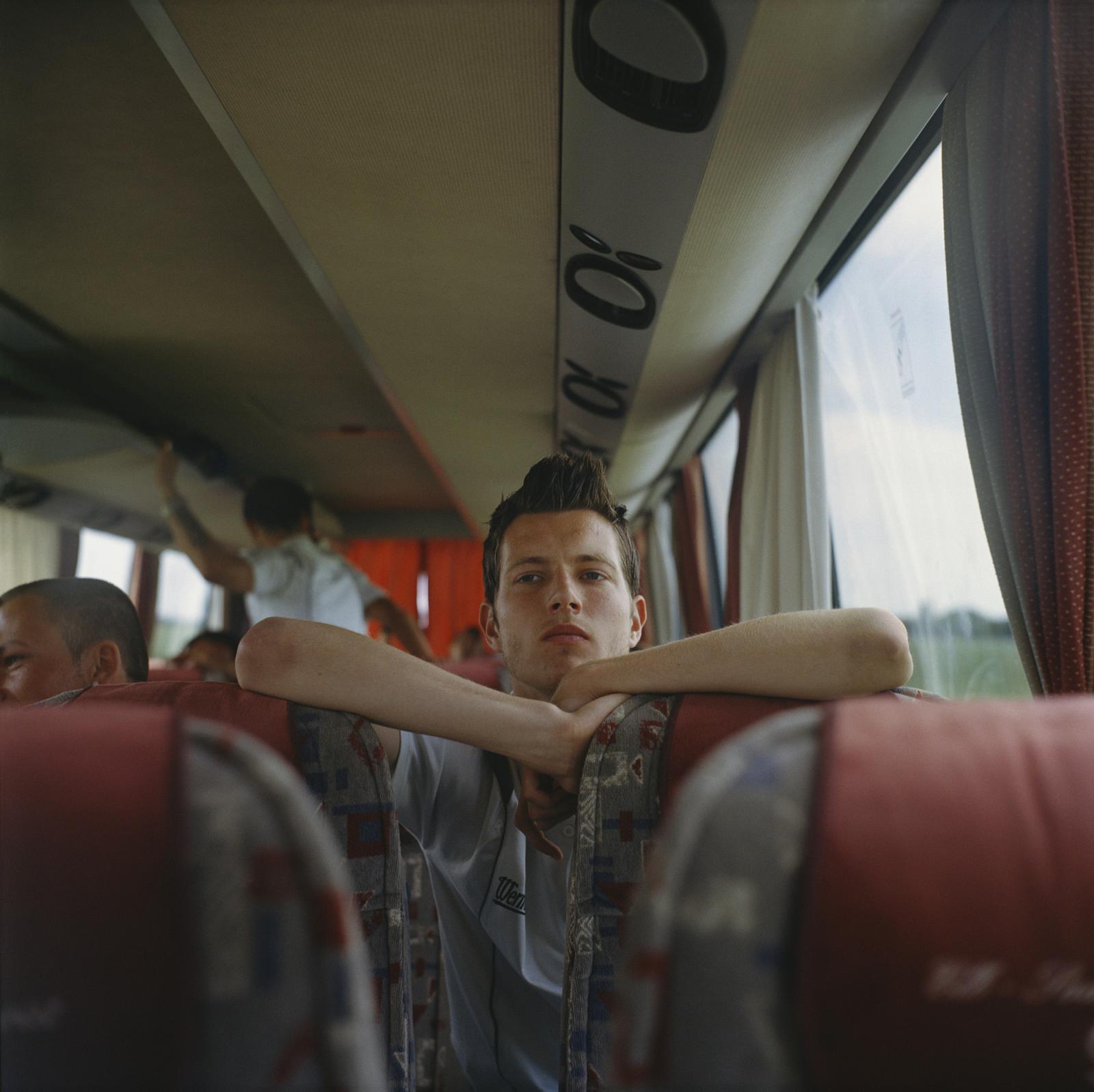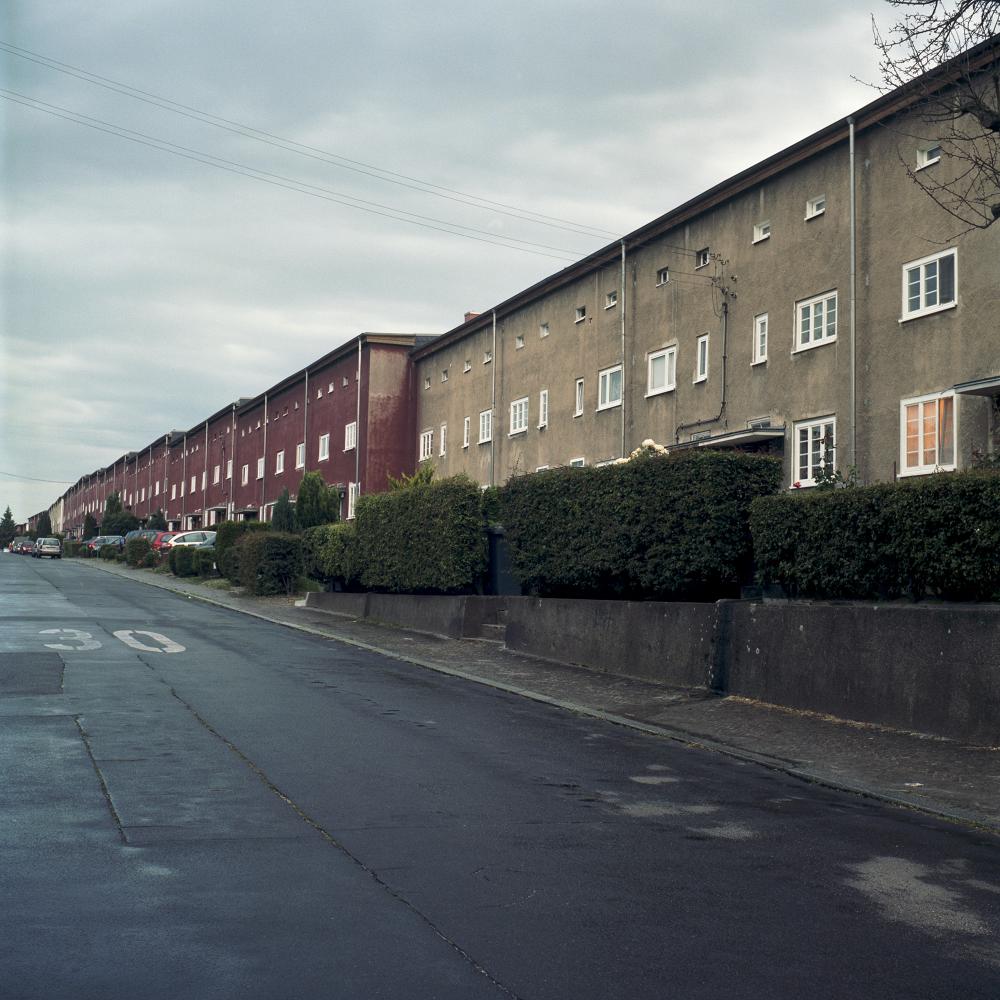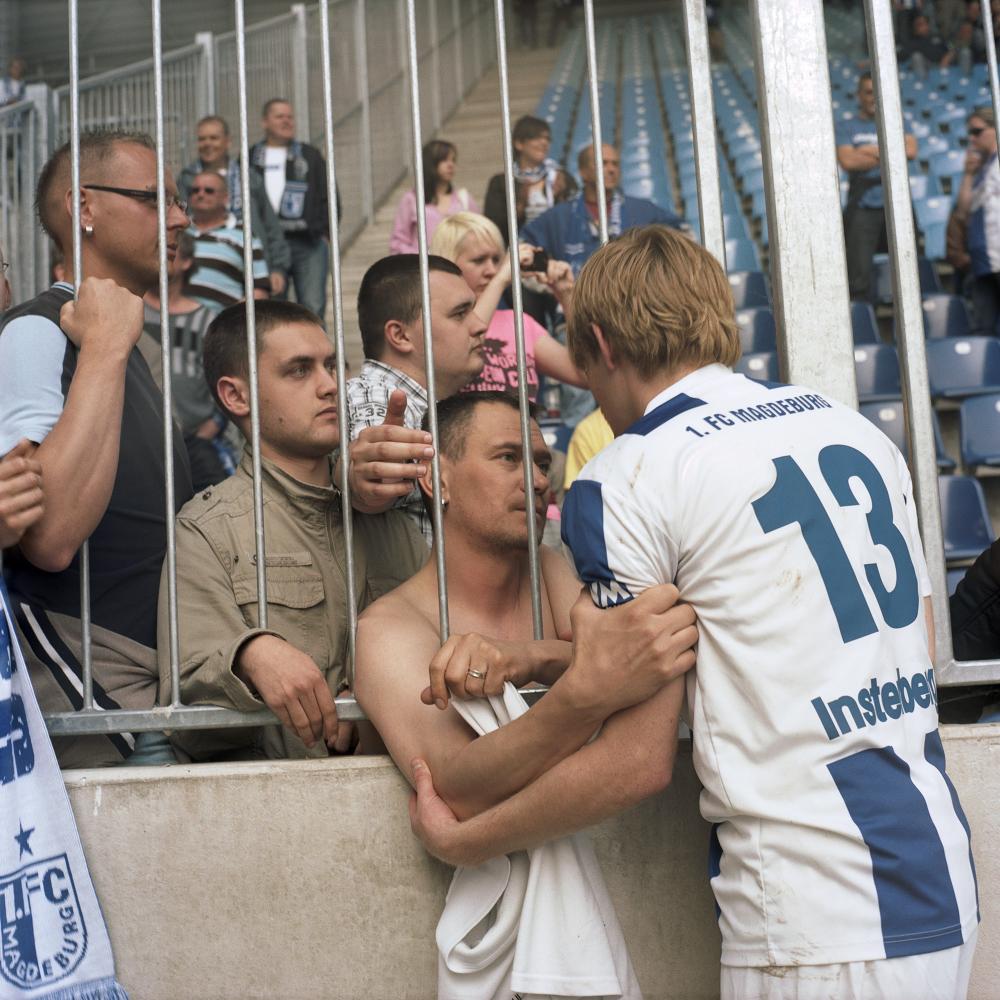Public Project
INTO THE BLUE
Summary
Magdeburg used to be the most successful team in GDR times. After, it has survived on the commemoration of the great achievement of 1974: the win of the European Best Cup against Milan FC. Since then: the Wall has fallen, players, money and industries have gone.
Nowadays the city can be proud of some occasional traces of the ancient power and beauty, of being the cradle of the band Tokyo Hotel, and of a soccer dream. ¨The same destiny share many Eastern German cities, having suffered of the recent history turning outs.
Soccer is a prodigy of our times which succeeds to create virtual communities sharing intense moments of mutuality. ¨I am attracted by signs of faith and the universality of emotions such a sport offers, in a region still looking for its identity in the country's divided history.
Chiara Dazi, 2010
Chiara Dazi, 2010
Tradition consoles in bad times and manages to produce authenticity and build identity. The number of supporters that has kept following the soccer team 1.FC Magdeburg during the difficult years of the club after the fall of the Wall was the highest of the whole German 4th league. The brand new stadium was hyperbolically built to contain up to 25.000 spectators, following the dream of league ascension.
Magdeburg used to be the most successful team in GDR times. After, it has survived on the commemoration of the great achievement of 1974: the win of the European Best Cup against Milan FC. Since then: the Wall has fallen, players, money and industries have gone.
Nowadays the city can be proud of some occasional traces of the ancient power and beauty, of being the cradle of the band Tokyo Hotel, and of a soccer dream. ¨The same destiny share many Eastern German cities, having suffered of the recent history turning outs.
Soccer is a prodigy of our times which succeeds to create virtual communities sharing intense moments of mutuality. ¨I am attracted by signs of faith and the universality of emotions such a sport offers, in a region still looking for its identity in the country's divided history.
Chiara Dazi, 2010
4,939


















